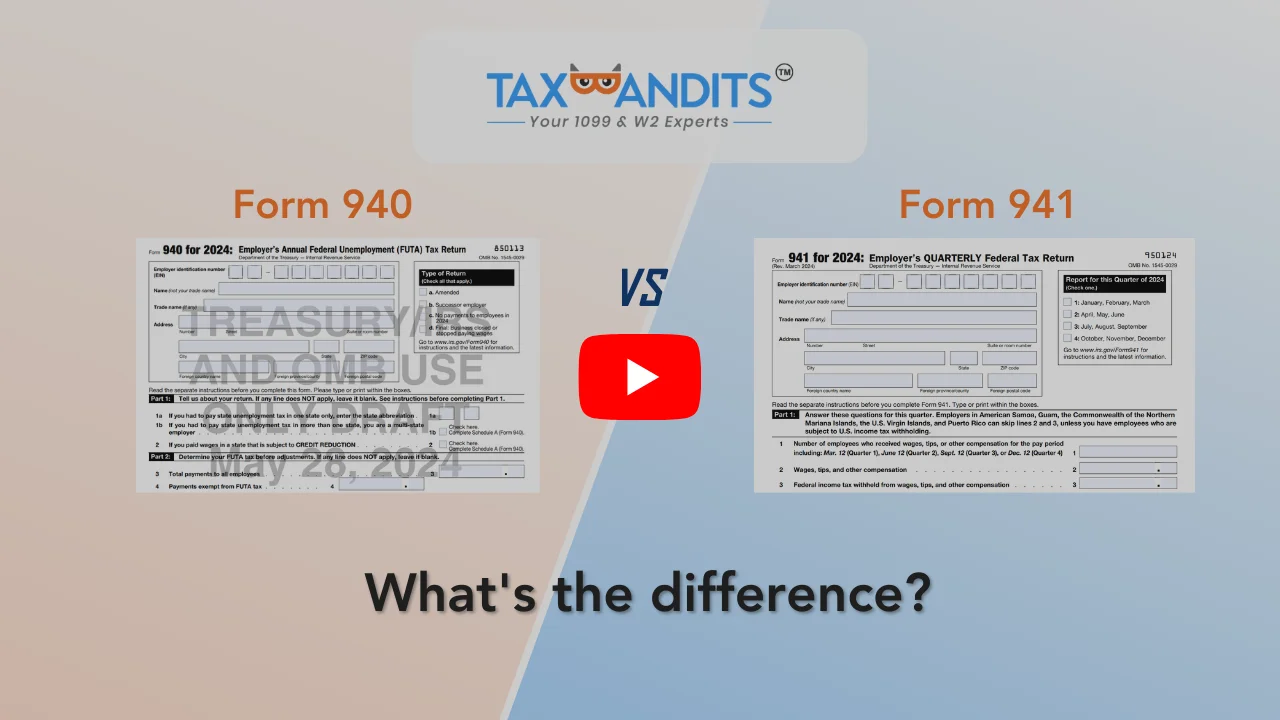Please check your email now!
Exciting news: Free payroll for small businesses is here! Register your interest today
940 vs 941: What is the difference between Form 940 and 941

- Home
- Payroll Forms
- Form 940 vs 941
What is the difference between 940 and 941?
Form 940 is used to report FUTA taxes, while Form 941 is used to report federal income tax withheld, Social Security, and Medicare tax withholding.
Check out the table below to find the key differences between 940 and 941.
| Form 940 | Form 941 | |
|---|---|---|
| Purpose | Form 940 deals exclusively with the Federal Unemployment Tax (FUTA), which is not withheld from employees' wages. Employers pay FUTA tax based on the wages they pay to employees. | Form 941 reports payroll taxes, which include federal income tax withholding, Social Security tax, and Medicare tax. These taxes are withheld from employees' wages and are also matched and paid by employers. |
| Due Date | Due Annually (January 31) |
Due Quarterly
(April 30, July 31, October 31 and January 31) |
| Tax rates | The FUTA tax rate is 6.0%, which applies to the first $7,000 paid to each employee as wages during the year. |
|
| Who is Liable |
FUTA tax is only paid by the employer; it is not withheld from the employee's wages |
Both employee and employer contribute to FICA tax |
| Deposit Requirements |
|
|
Form 940 and 941 Filing Made Easy with TaxBandits!
It's essential to fully understand your tax responsibilities with these forms to avoid penalties or owing money to the IRS.
Filling out forms 940 and 941 can feel difficult, but you don't have to deal with that stress anymore. Let TaxBandits simplify the process for you!
TaxBandits offers built-in features to automate your filing process, ensure error-free submissions with internal checks, and provide multiple payment options for your tax payments.
TaxBandits supports all the required forms, including 940 Schedule A, 941 Schedule B, 8453-EMP & 8974, to be attached with your 940 and 941 filing.